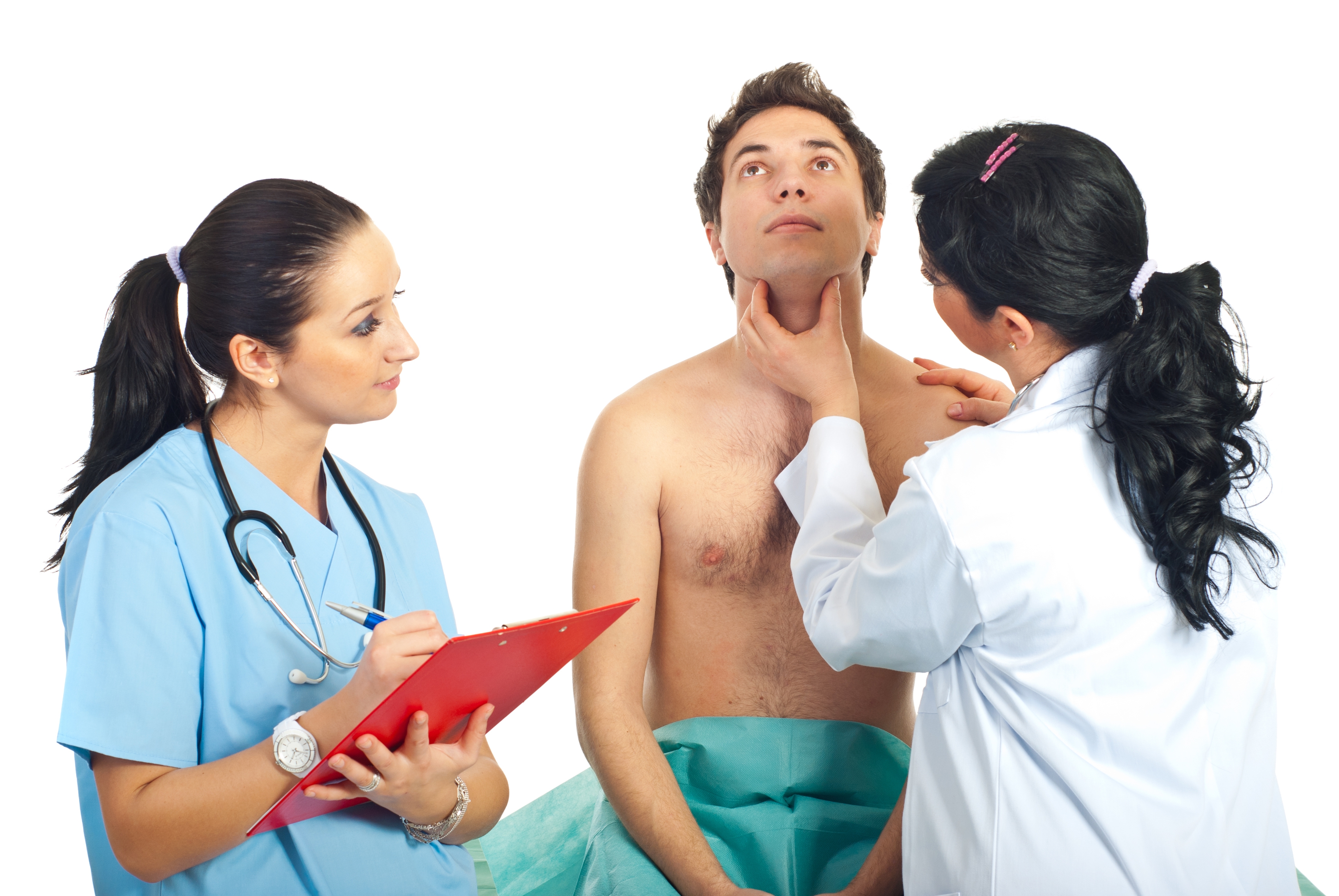
In fact, [sub-health] is not a formal and rigorous medical term. However, there is a concept of [subclinical] in medicine.
Subclinical state generally refers to the early stage of the disease, which belongs to [the disease that will be diseased] and needs to be paid attention to.
Clinical hyperthyroidism and clinical hypothyroidism
What we usually call hyperthyroidism or hypothyroidism is called [clinical hyperthyroidism] or [clinical hypothyroidism] in medicine.
The addition of the word [clinical] means that this hyperthyroidism or hypothyroidism will show certain clinical symptoms. For example:
- Clinical hyperthyroidism has symptoms such as palpitation, shaking hands, fear of heat, hyperhidrosis, excessive food and easy hunger. Clinical hypothyroidism has symptoms such as fear of cold, fatigue, loss of appetite and weight gain.
In addition, when thyroid function (hereinafter referred to as thyroid function) is examined, clinical hyperthyroidism/hypothyroidism has not only abnormalities of thyroid stimulating hormone (TSH), but also abnormalities of free thyroxine (FT4) and free triiodothyronine (FT3).
Hyperthyroidism, hypothyroidism [reserve army]
If clinical hyperthyroidism/hypothyroidism is imagined as a [regular army] with thyroid dysfunction, then subclinical hyperthyroidism/hypothyroidism belongs to a [reserve army] with thyroid dysfunction.
As mentioned at the beginning of the article, the so-called [subclinical] state refers to the early stage of hyperthyroidism or hypothyroidism, at which time there is only abnormality of thyroid function, no clinical symptoms or only slight discomfort.
It is possible for the reserve army to develop into a regular army, but its power is not as strong as that of the regular army.
When performing thyroid function examination, subclinical hyperthyroidism/hypothyroidism only has TSH changes, and T3 and T4 are still in the normal range.
Who will develop subclinical hyperthyroidism/hypothyroidism
Subclinical hyperthyroidism/hypothyroidism can be transient or persistent. Transient refers to the fact that the thyroid function will return to normal after a period of time. Persistence means that it is difficult for nail function to return to normal without treatment.
Transient subclinical hyperthyroidism is common in:
- After iodine 131 treatment; After thyroid surgery; Early thyroiditis, such as Hashimoto thyroiditis, subacute thyroiditis, etc.
Transient subclinical hypothyroidism is common in:
- The middle stage of thyroiditis, such as most subacute thyroiditis; Drug reduction is not timely during hyperthyroidism treatment.
Persistent subclinical hyperthyroidism is common in:
- Graves disease (the most common cause of hyperthyroidism), thyroid hyperfunctional adenoma, nodular toxic goiter; Side effects of amiodarone, interferon and other drugs; Patients with thyroid cancer take excessive thyroxine after operation, causing artificial subclinical hyperthyroidism to prevent tumor recurrence and metastasis.
Persistent subclinical hypothyroidism is common in:
- After iodine 131 treatment; After thyroid surgery; In the late stage of thyroiditis, such as Hashimoto’s thyroiditis, there are very few subacute thyroiditis.

Facing the reserve army, is it defense or attack?
Although subclinical hyperthyroidism/hypothyroidism is a reserve force, it will also cause harm to the body in the long run.
Subclinical hyperthyroidism may:
- Developing into clinical hyperthyroidism; Causing hyperthyroidism heart disease and even heart failure; Aggravating osteoporosis, leading to fracture; Let a person become neurotic, anxious; Increases the risk of Alzheimer’s disease.
Subclinical hypothyroidism may:
- Developing into clinical hypothyroidism; Causing hyperlipidemia and atherosclerosis, further leading to coronary heart disease; Affect ovulation and pregnancy, even successful pregnancy will also affect the fetal nerve and intelligence development, increasing the probability of abortion.
So how should we deal with this group of reserve troops? -Some situations require defense and some situations require attack.
Does what take defense?
The so-called defense means that there is no need for treatment, only regular reexamination of a skill, color Doppler ultrasound, etc. Generally, reexamination is conducted every 6 ~ 12 months, and [attack] is carried out once there is any change.
Subclinical hyperthyroidism that meets any of the following conditions does not require treatment:
- Young, with no hyperthyroidism symptoms and TSH between 0.1 and 0.4 mU/L; After iodine 131 treatment; During pregnancy.
Subclinical hypothyroidism that meets all the following conditions does not require treatment:
- TSH ranged from 5 mU/L to 10 mU/L; No hypothyroidism symptoms; Thyroid peroxidase antibody (TPOAb) was negative; Normal blood lipid; No swelling of thyroid gland; Adults; Non-pregnant women and no pregnancy plan.
In addition, if TSH is between 5 ~ 10 mU/L and age > 85 years old, no treatment is required.
Pregnant women belong to a special group. Subclinical hypothyroidism of pregnant women has a special definition and treatment standard. Please see < < this pregnant mother for details. Do you really suffer from hypothyroidism during pregnancy? > >
What situation take attack?
The so-called attack refers to active treatment with drugs or other means (such as iodine 131). During the treatment period, the nail function is checked once a month, and every 3 ~ 6 months after the nail function is completely normal.
Subclinical hyperthyroidism that meets one of the following conditions needs treatment, including taking methimazole, propylthiouracil, propranolol or iodine 131:
- Patients over 65 years old who have not been treated with iodine 131; Patients under 65 years old with TSH < 0.1 mU/L.
As long as the TSH of subclinical hypothyroidism patients is > 10 mU/L, thyroxine should be taken.
If Subclinical hypothyroidism yours TSH is between 5 ~ 10mU/L, Meet one of the following conditions Treatment is only needed at this time:
- Having hypothyroidism symptoms; Hyperlipidemia; Thyroid peroxidase antibody TPOAb increased; Goiter; Children and adolescents; Affective disorders and depression; TSH has a tendency to increase continuously. Patients with infertility and ovulation dysfunction.
Finally, for subclinical hyperthyroidism or hypothyroidism caused by drugs, only the relevant drugs need to be adjusted.
